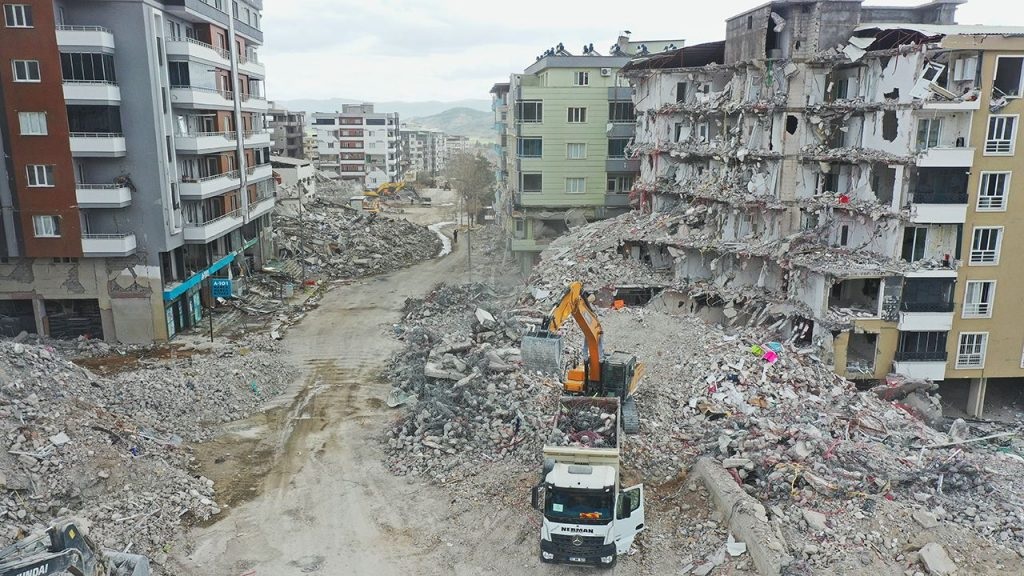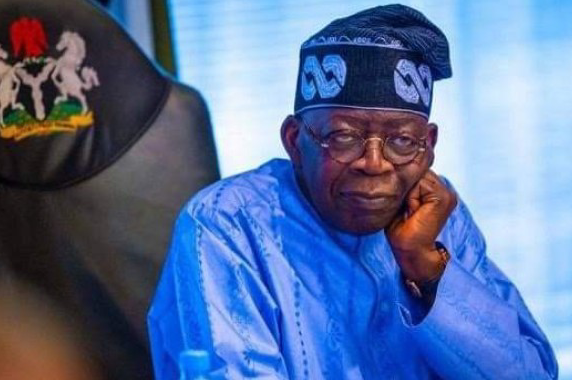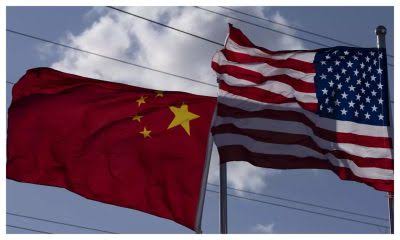News
SAD! 53 killed by earthquake in China’s Tibet region

A devastating earthquake in China’s remote Tibet region killed at least 53 people and collapsed “many buildings” on Tuesday, state media reported, with tremors also felt in neighbouring Nepal’s capital Kathmandu and parts of India.
Videos published by China’s state broadcaster CCTV showed houses destroyed with walls torn apart.
Rescue workers waded through rubble strewn across the ruins in the aftermath of the earthquake, footage showed, while some gave locals thick blankets to keep warm.
Surveillance images published by CCTV showed people running through a store’s aisles as shelves shook violently, sending objects like toys tumbling to the ground.
In the town of Lhatse, videos geolocated by AFP showed debris scattered in front of streetside eateries.
The powerful quake struck Dingri county with a magnitude of 6.8 near the border with Nepal at 9:05 am (0105 GMT), according to the China Earthquake Networks Center (CENC). The US Geological Survey reported the tremor as magnitude 7.1.
“Fifty-three people have been confirmed dead and 62 injured as of Tuesday noon, after a 6.8-magnitude earthquake jolted Dingri County in the city of Xigaze in Xizang Autonomous Region at 9:05 am Tuesday,” Xinhua news agency said.
Over 1,000 houses have sustained varying degrees of damage, it added.
“Dingri county and its surrounding areas experienced very strong tremors, and many buildings near the epicentre have collapsed,” state broadcaster CCTV said.
Chinese President Xi Jinping on Tuesday emphasised “the full-scale search and rescue efforts, minimizing casualties to the greatest extent possible, properly resettling affected residents, and ensuring their safety and warmth through the winter”, CCTV added.
Xinhua said that “local authorities are reaching out to various townships in the county to assess the impact of the quake”.
Temperatures in Dingri are around minus 8 degrees Celsius (17.6 degrees Fahrenheit) and will drop to minus 18 this evening, according to the China Meteorological Administration.
Disaster relief aid, including cotton tents, quilts and items for high-altitude and frigid areas, had been dispatched by central authorities to areas impacted by the quake, Xinhua said.
The high-altitude county in the Tibet region is home to around 62,000 people and situated on the Chinese side of Mount Everest.
While earthquakes are common in the region, Tuesday’s quake was the most powerful recorded within a 200-kilometre radius in the last five years, the CENC added.
– ‘Shook quite strongly’.
As well as Kathmandu, areas around Lobuche in Nepal in the high mountains near Everest were also rattled by the tremor and aftershocks.
“It shook quite strongly here, everyone is awake,” said government official Jagat Prasad Bhusal in Nepal’s Namche region, which lies nearer to Everest.
But no damage or deaths had been reported so far and security forces had been deployed, Nepali Home Minister spokesman Rishi Ram Tiwari said.
Nepal lies on a major geological faultline where the Indian tectonic plate pushes up into the Eurasian plate, forming the Himalayas, and earthquakes are a regular occurrence.
In 2015, nearly 9,000 people died and more than 22,000 were injured when a 7.8-magnitude quake struck Nepal, destroying more than half a million homes.
Some tremors were felt in Bihar state in India but no injuries were reported.
Three people were killed and dozens injured after a 7.0-magnitude earthquake struck along the mountainous China-Kyrgyzstan border in January last year.
A quake in December 2023 in northwest China killed 148 people and displaced thousands in Gansu province.
That quake was China’s deadliest since 2014, when more than 600 people were killed in southwestern Yunnan province.
In the December 2023 earthquake, subzero temperatures made the aid operation launched in response even more challenging, with survivors huddled around outdoor fires to keep warm.
AFP
News
Watch current episode of Your family Lawyer as Chinye breaks down intricacies of bloodlines, DNA tests

Again, Chuma Chinye a seasoned lawyer in last Saturday’s podcast of Your family Lawyer adequately thrashed out intricacies associated with DNA tests and bloodlines in family matters.
WATCH:
News
Protests erupt in Plateau over incessant k!llings

Protests erupted in Jos, the Plateau State capital, on Monday morning over the continued killings of indigenous residents by gunmen suspected to be Fulani militants.
The demonstrations, led by Christian leaders including the state chairman of the Christian Association of Nigeria, Rev. Polycarp Lubo, commenced on Monday morning at the Fawvwei Junction community road, causing a heavy gridlock and stranding commuters.
The latest protest comes amid a surge in violent attacks by gunmen in various communities, with over 100 people killed in Bokkos and Bassa LGAS in the past two weeks.
“We are not happy over the continuous attacks and killings by gunmen in our communities. That’s why we have come out again to protest these happenings,” said Gyang Dalyop, one of the protesters.
Another protester, Hannatu Philip, called on the government to intervene before it spirals out of control.
The protesters brandishing placards with different inscriptions were seen marching towards the Rayfield Government House.
News
Tinubu not your equal – Presidency replies Peter Obi’s ex-running mate, Datti

The Presidency has said the former Labour Party, LP, presidential running mate, Yusuf Datti Baba-Ahmed is no match for President Bola Tinubu.
Tinubu’s Special Adviser on Media and Public Communication, Sunday Dare was reacting to Datti’s remark that he (Tinubu) would not run for the presidency in 2027.
The former LP running mate insisted that Tinubu’s time is up, adding that everything is there for the president and the ruling All Progressives Party, APC, to see that they lose in 2027.
Dismissing such remark, Dare likened Datti’s comment to the new year predictions of charlatan ‘prophets’ which never come through.
In a statement he signed, Dare said the likes of Peter Obi and Datti would have been president left for the latter’s theories.
According to Dare, Datti has chosen to venture into an unfamiliar terrain.
The statement reads partly: “Yusuf Datti Baba-Ahmed’s “illogical logic” was all over the place in his recent interview with a television channel.
“Listening to Yusuf Datti Baba- Ahmed spurn his postulations about the political future of Nigeria and that of the incumbent President is like listening to the new year predictions of charlatan ‘prophets’ which never come through. Yusuf Baba Ahmed and his co-traveller Peter Obi are indeed a “double whammy“ in the Nigerian political space.
“He chose to base his political calculations on President Bola Tinubu not winning a second term given his antecedents and because Nigerians will decide at the polls among other things. He conveniently avoided the substance of performance and capacity.
“Unfortunately, he chose to walk into a lane he was unfamiliar with and chose to confront a politician he is no match for.”
Similarly, the Presidency had also stressed that Tinubu will reveal his plans for a second term at the right time.
It said the APC 2027 presidential campaign billboards had no links to Tinubu and Vice President Kashim Shettima.
-

 News8 hours ago
News8 hours agoBREAKING! Pope Francis is dead
-

 News13 hours ago
News13 hours agoRetirees with outstanding loans may lose property – FG
-

 News5 hours ago
News5 hours agoUPDATED: How Pope Francis transited, last activity, health challenges, others
-

 News22 hours ago
News22 hours agoIsrael’s remote controlled bulldozers breaking ground in Gaza war
-

 News13 hours ago
News13 hours agoSad as hotelier slumps, dies at wife’s 60th birthday thanksgiving
-

 News22 hours ago
News22 hours ago70-hour Chess Marathon: Onakoya reportedly breaks record set by Norwegians
-

 Metro13 hours ago
Metro13 hours ago77-year-old Nigerian Uber driver shot dead in US, passenger in critical condition
-

 News8 hours ago
News8 hours agoFemi Ojudu: We Understand His Bitterness Being A Political Coupist– Lere Olayinka bombs Ojudu over comment on wike


















